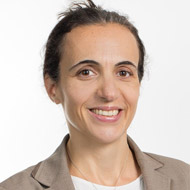
Dr Caroline Allen to ensure animal welfare is top of the agenda
As veterinary director for the London branch of the RSPCA, RCVS Council candidate Dr Caroline Allen is passionate about protecting and promoting animal welfare.
In her manifesto, Caroline asserts that to perform its role of upholding veterinary standards, the RCVS ‘needs to understand and respond appropriately to the challenges facing the profession, while also ensuring that animal welfare is at the top of the agenda in all aspects of veterinary decision making’.
She adds that ensuing tensions between providing veterinary care for animals, meeting client expectations and the demands of business ‘are more pressing than ever’.
‘The RCVS has to show that it really understands these tensions and how they can impact adversely on both animal welfare and vets’ quality of life,’ she writes.
Caroline graduated from the University of Cambridge in 1998 and has enjoyed a diverse career in clinical practice. She began work at a mixed practice in Norfolk, before moving on to gain a certificate in Small Animal Medicine at the Goddard Veterinary Hospital in Wanstead.
After four busy years, Caroline caught the travel bug and spent a year exploring and performing voluntary neutering work in Thailand. On her return, she locumed for a while before moving to North London as the head vet of a small animal practice.
With a background in practice that cuts across private and charity, Caroline believes that she is well placed to play a constructive role on Council. If elected, she would like to ensure that veterinary educators prepare graduates for life in the real world.
‘Having mentored new and recent graduates I have seen a lack of confidence in taking a more pragmatic approach to cases,’ she said. ‘Regarding veterinary education, I would like to see more research into the effects that high debt levels are having on the career choices and opportunities and expectations of vets’.
The RCVS will post ballot papers and candidates’ details to all veterinary surgeons and veterinary nurses eligible to vote during the week commencing 13 March. All votes must be cast, either online or by post, by 5 pm on Friday, 28 April 2017.
Image (C) RCVS



 The veterinary mental health charity Vetlife is inviting the veterinary community to join it for a sponsored cold-water dip.
The veterinary mental health charity Vetlife is inviting the veterinary community to join it for a sponsored cold-water dip.